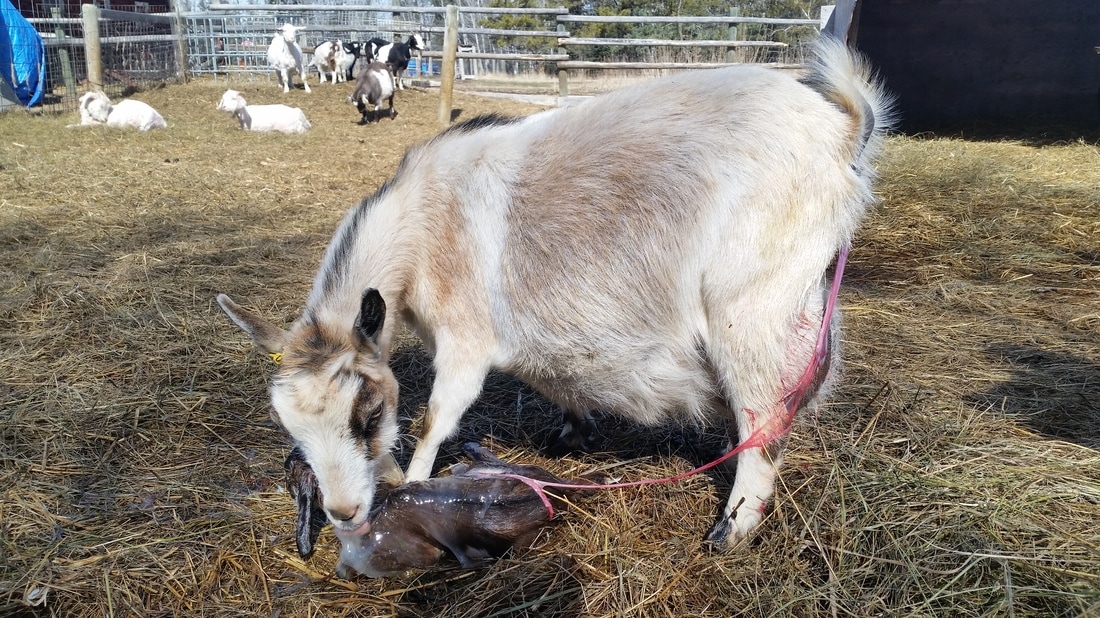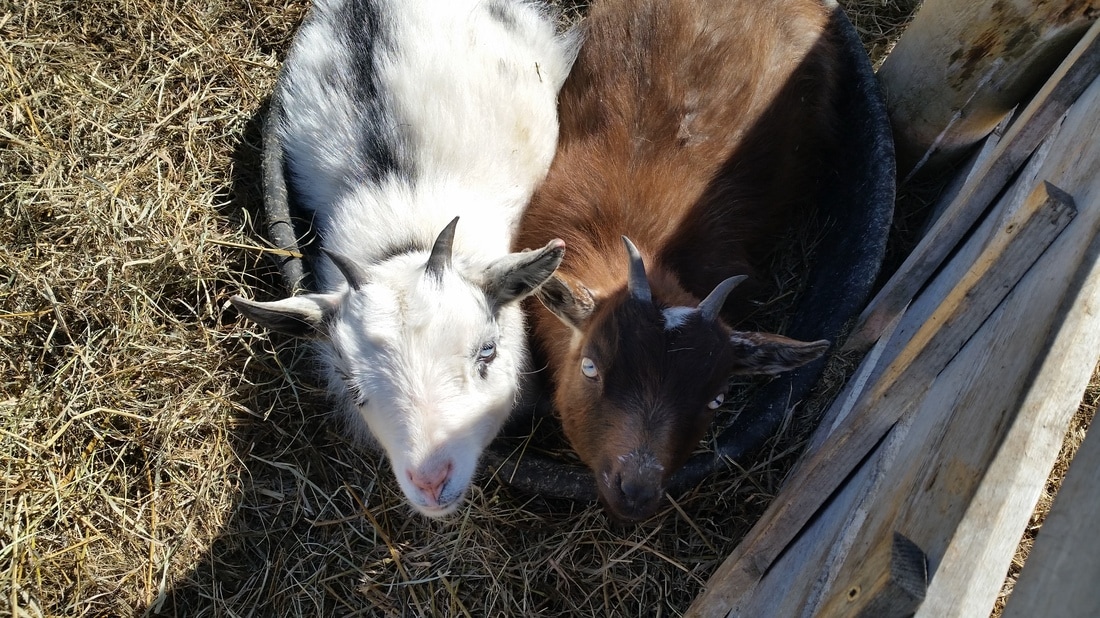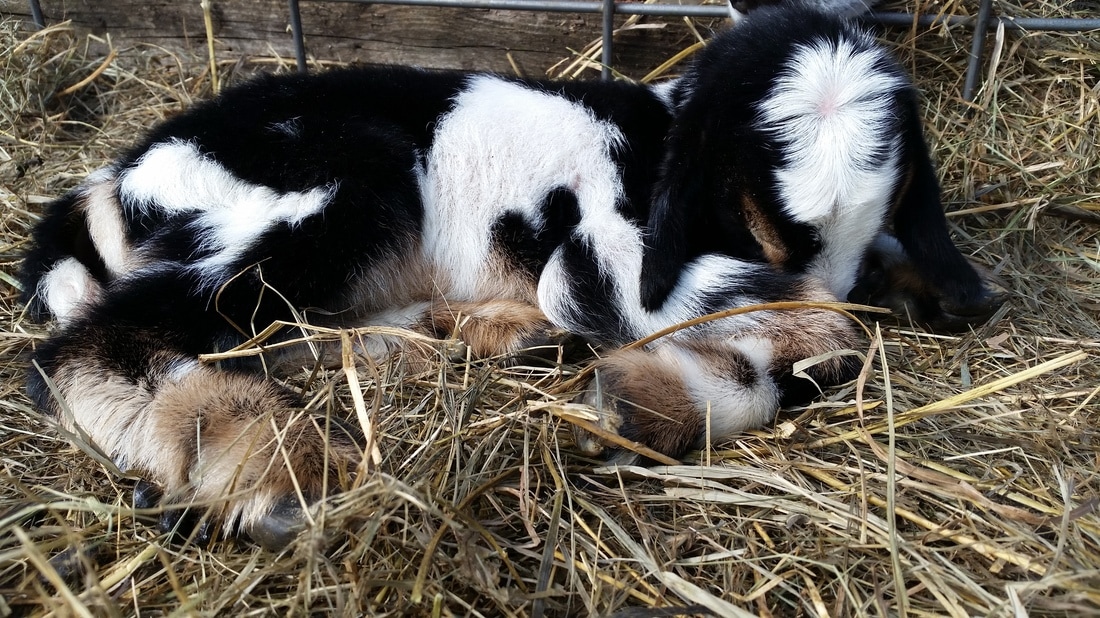Nigerian Dwarf goats are hardy little critters, weathering our cold winters well. They grow a fuzzy coat with a downy layer that insulated them very well.
Nubian goats are full sized goats, renown for their delicious, rich milk and mellow natures, but they are not at all hardy. Nor are they great at staying healthy. They need many interventions to stay healthy. That is where the cross is most beneficial. Nigerian Dwarf goats and Nubian goats are both dairy goats. The Nubian/Nigerian cross, or mini Nubian, brings the best of both breeds to a small stature, good natured, hardy and easy to handle goat, perfect for small holders who want fresh milk.
There are three doelings born so far. There is only one more purebred Nigerian left to give birth and the others are Angora/Nigerian crosses. The Angora goat is a very milky goat, but is bred for fibre. The Nigora, or cross, has lovely spinnable fibre, is very milky and much hardier and better at mothering and birthing than Angoras. The Nubian/Angora/Nigerian Dwarf goats likely will not have that lovely fibre, but they will grow a warm winter coat and be very milky. Still, they are not classed as Mini Nubians, but close.
So, since my fibre farm is not a success due to distance, proximity to those who work in the fibre arts, and the fact that we feed hay year round which contaminates the fleece, I am switching from fibre animals to food animals. Mini Nubians are the perfect choice. As of today, there are five first generation, or F1, Mini Nubian doelings on the farm and possibly a few more to come. A new mini Nubian buck is coming for breeding. The girls will be 7 months or older by December, perfect for breeding. Their kids will be F2 mini Nubians, that is mini Nubian bred to mini Nubian and the resulting kids will be considered true Mini Nubians.
I do not mind milking goats and love goat cheese. I am not sure what the farm will look like in a few years and where I will relocate when I retire. I did promise my dogs that I would not leave them when they are old, so I may stay on with just three or four goats and three or four sheep, a few chickens and such, until the dogs are gone. Time will tell. Hopefully you will still be with me. Thanks for joining the Fat Ewe Farm!




 RSS Feed
RSS Feed